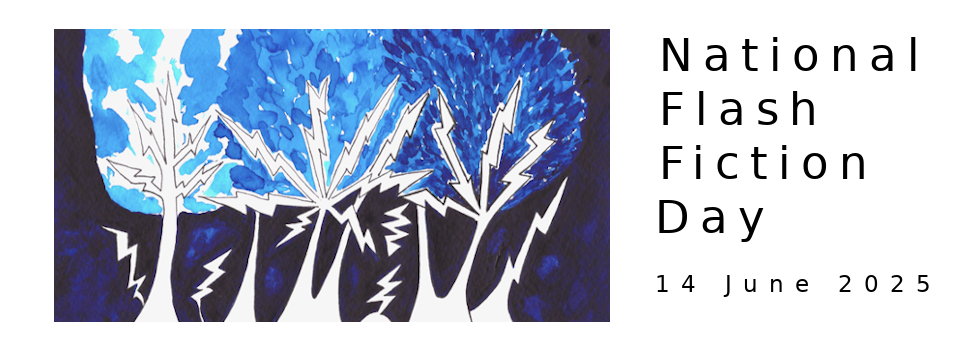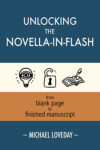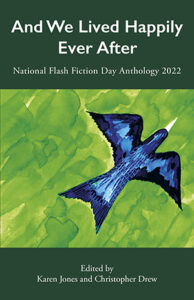National Flash Fiction Day might be over, but the flashy fun continues through the weekend....
Over at The Write-In, we've started publishing our first responses to 2022's writing prompts. Remember, you have until 23:59 on Sunday, 19 June 2022 to send us a response to our writing prompts for a chance of publication at The Write-In...and we've made it easy for you by collecting all of this year's prompts in one place. Go on...send us some of your words!
Over at FlashFlood, you can join us from 8:00 a.m. BST for our latest Community Flash Series. We're catching up with the Writers Group from Wandsworth Carers Centre, a charity that provides support to unpaid carers. They've provided us with thirteen brand-new flashes written by carers who are exploring flash as a means of finding time for themselves, self-expression, and coping with the demands of caring. We'll post an introduction to the series at 8:00 a.m. BST and then one story every hour on the hour through 9:00 p.m.
And, of course, there are other great organisations holding flash fiction events this weekend and beyond. Do check them out!
- New Zealand's National Flash Fiction Day is celebrating their ten year anniversary on Sunday, 19 June 2022. They have a brilliant line-up of Flash Fiction Fun and you can find the full schedule at their website, https://nationalflash.org/.
- Writers' HQ is offering a Five Days of Flash Challenge which will have you drafting five new stories in five days -- all for free! You can find Writers' HQ at https://writershq.co.uk and information about the Five Days of Flash here.
- The Flash Fiction Festival is back this year, with an event next month, 8-10 July 2022. We'll be holding a reading of anthology at the festival, alongside their many fantastic talks, workshops and readings. Find out more at https://www.flashfictionfestival.com/.
We hope you had a lovely National Flash Fiction Day and a great rest of the weekend. Take care and happy writing from Ingrid, Diane and all of us at the UK's National Flash Fiction Day.


 Rachel Jendrzejewski is a writer based in Minneapolis. You can find her online at
Rachel Jendrzejewski is a writer based in Minneapolis. You can find her online at  Just in case you weren't busy enough at
Just in case you weren't busy enough at 
 Michael Loveday writes fiction, poetry, and non-fiction. His hybrid novella
Michael Loveday writes fiction, poetry, and non-fiction. His hybrid novella  Farhana Khalique is a writer, voiceover artist and teacher from London. Her stories are forthcoming or have appeared in the National Flash Fiction Day Anthology 2021, Leicester Writes Short Story Prize Anthology 2020, Reflex Fiction and more. Farhana has been shortlisted for The Asian Writer Short Story Prize, and she has won a Word Factory Apprentice Award. She is also the editor of Desi Reads and a submissions editor at SmokeLong Quarterly. Find Farhana
Farhana Khalique is a writer, voiceover artist and teacher from London. Her stories are forthcoming or have appeared in the National Flash Fiction Day Anthology 2021, Leicester Writes Short Story Prize Anthology 2020, Reflex Fiction and more. Farhana has been shortlisted for The Asian Writer Short Story Prize, and she has won a Word Factory Apprentice Award. She is also the editor of Desi Reads and a submissions editor at SmokeLong Quarterly. Find Farhana  Anita Goveas is British-Asian and based in London. She’s on the editorial team at Flashback Fiction, an editor at Mythic Picnic’s twitter zine, and she’s an editor for the FlashFlood. She is one of the teachers on Dahlia Publishing’s 2021 ‘A Brief Pause‘ writer’s development programme. Her debut flash collection Families and Other Natural Disasters was published by Reflex Press in Sept 2020. Find her at
Anita Goveas is British-Asian and based in London. She’s on the editorial team at Flashback Fiction, an editor at Mythic Picnic’s twitter zine, and she’s an editor for the FlashFlood. She is one of the teachers on Dahlia Publishing’s 2021 ‘A Brief Pause‘ writer’s development programme. Her debut flash collection Families and Other Natural Disasters was published by Reflex Press in Sept 2020. Find her at 